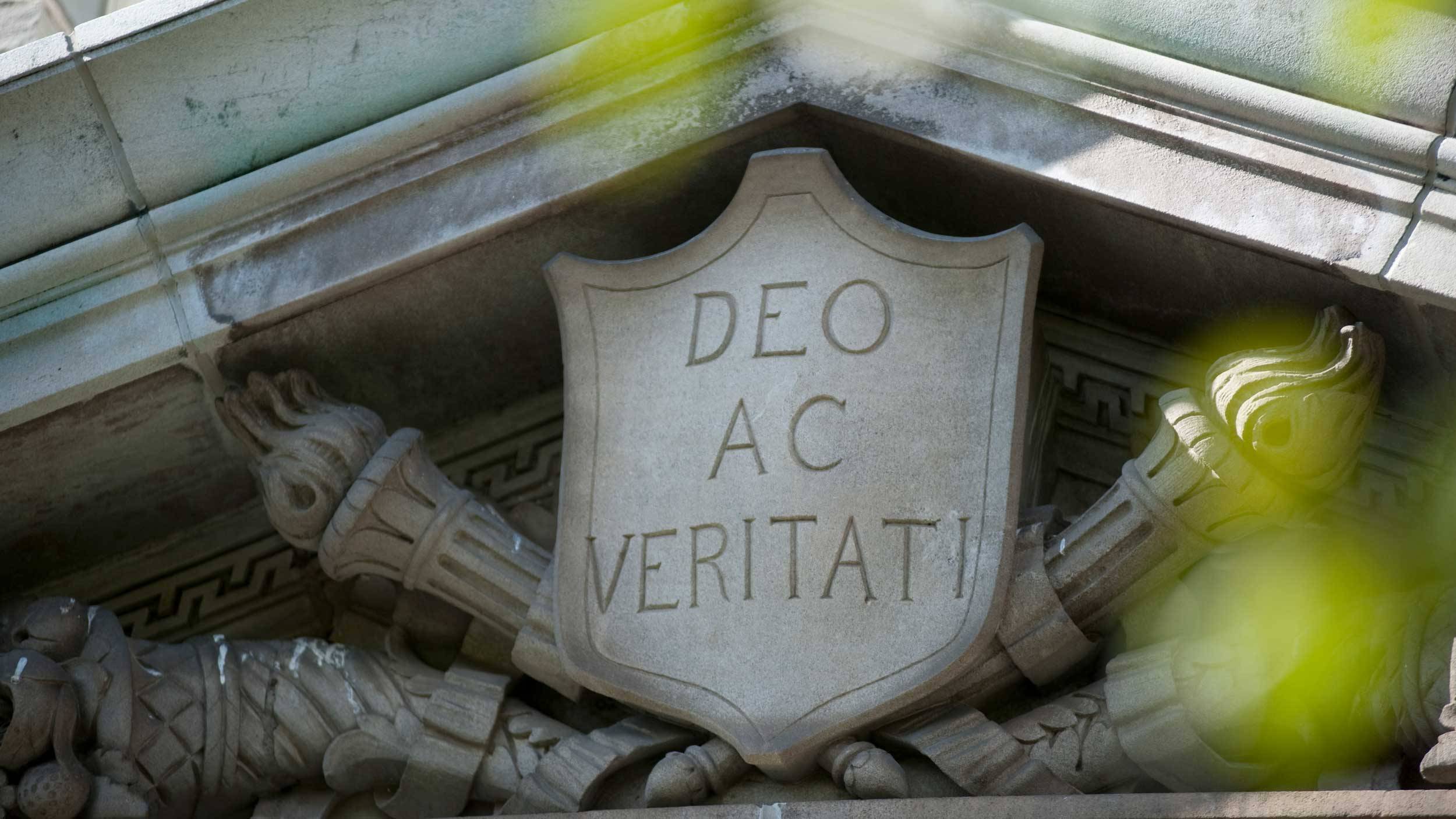The 34th anniversary of the Lockerbie bombing approaches, and the U.S. government prepares to prosecute Abu Agila Mohammad Mas’ud for his role in the attack on Pan Am flight 103. Meanwhile, the Colgate community remembers Scott Saunders ’89, who was among the victims on Dec. 21, 1988.
In the fall of 1989, Colgate Magazine — then known as the Colgate Scene — published the following essay. It is offered here as a remembrance and reminder.
Fr. Tom Powell, Colgate’s Catholic chaplain and leader of the Newman Community, writes of a sentimental journey he shared with five students — Peter Luglio, Peter Derrenbacker, Jeff Craig and Dean Gregory, all ’89, and Rob Curran ’91 — in June.
We came to the British Isles, five students and a priest, to stretch our minds, to relax and to immerse ourselves in new experiences. From the day we started planning, each of us had the same thought: we wanted to — had to — go to Lockerbie.
John Flynn [Syracuse University] and Scott Saunders had been part of us. Last winter’s tragedy in Lockerbie changed that. Not that they are any less a part of us now; in fact, they are part of our lives in many ways more than before. Only it’s different now. And that’s why we needed Lockerbie. After the memorial services, the tree planting and dedication, and all the prayers and hugs and tears, we knew that any trip to Britain would have been strangely incomplete without a brief stop, to think, to remember, to pray.
The scenery is striking. Simple, colorful, very neat, dotted with rolling hills, sheep farms and lakes. There is an almost magical quality to the place. It seems so unlikely a spot to be hammered by an act of international terrorism — and yet, what is a “likely spot”?
The six of us sat quietly, looking out the windows of the train. Lockerbie itself is very small, situated beside a major highway. There is definitely a quiet mood to the place. How much is indigenous and how much can be attributed to last December is hard to discern, probably a mixture of both.
A railroad attendant kept our bags at the station and gave us directions to the closest of the four major areas: “Just up past the police station to the gas station. Turn right into Sherwood Park. You can’t miss it.” He was right, we didn’t. Right next to the highway, bordered by several burned-out houses, was an odd-shaped field, looking very neat, freshly covered with fill. At first we doubted that this could be the place, until we saw fresh flowers sticking up here and there in the fill. We walked silently into and around the field, then each of us wandered off in our own directions, none of us wanting to linger too long. The feeling was one that could not get better with time. It helped just being there.
Quite by chance I ran into the town doctor, Ken McQueen. After I introduced myself, Ken said he’d like to drive me around the town. He took me to the cemetery where a small white granite memorial had been erected to all the victims of Pan Am 103 and where 11 unidentified victims are buried. It was very moving to kneel there for a moment of silence and prayer.
All the people we met were very friendly — a shopkeeper in a candy store, a man who sold fish and chips and mutton pie. Children stopped playing in a parking lot to ask us if we were Americans, then told us to “Enjoy Lock” (as they call it). The whole town is desperately trying to rebuild and get on with life.
With our dinners on our knees, we sat on the curb and spoke of what and how we felt, of how sad and quiet this little town seemed, of how terrorism, prejudice and inhumanity rub off on all of us and can so easily bring out the worst in us — a desire for vengeance. Maybe, hopefully, we thought, a tragedy this horrific has made the whole world pause and consider inhumanity, bigotry and violence in all its forms. We held no service, said no prayers aloud. We decided instead merely to be present. This tragedy is so enormous that no words can objectify. We merely wanted to be left alone with our thoughts, our prayers and our hopes for the future of humanity. And our aloneness brought us together in a whole new way.
Spring had come to Lockerbie, the changing of the seasons happening once again — the living and the dying and the living again. We’re not glad we came, but it was important for us to come.
